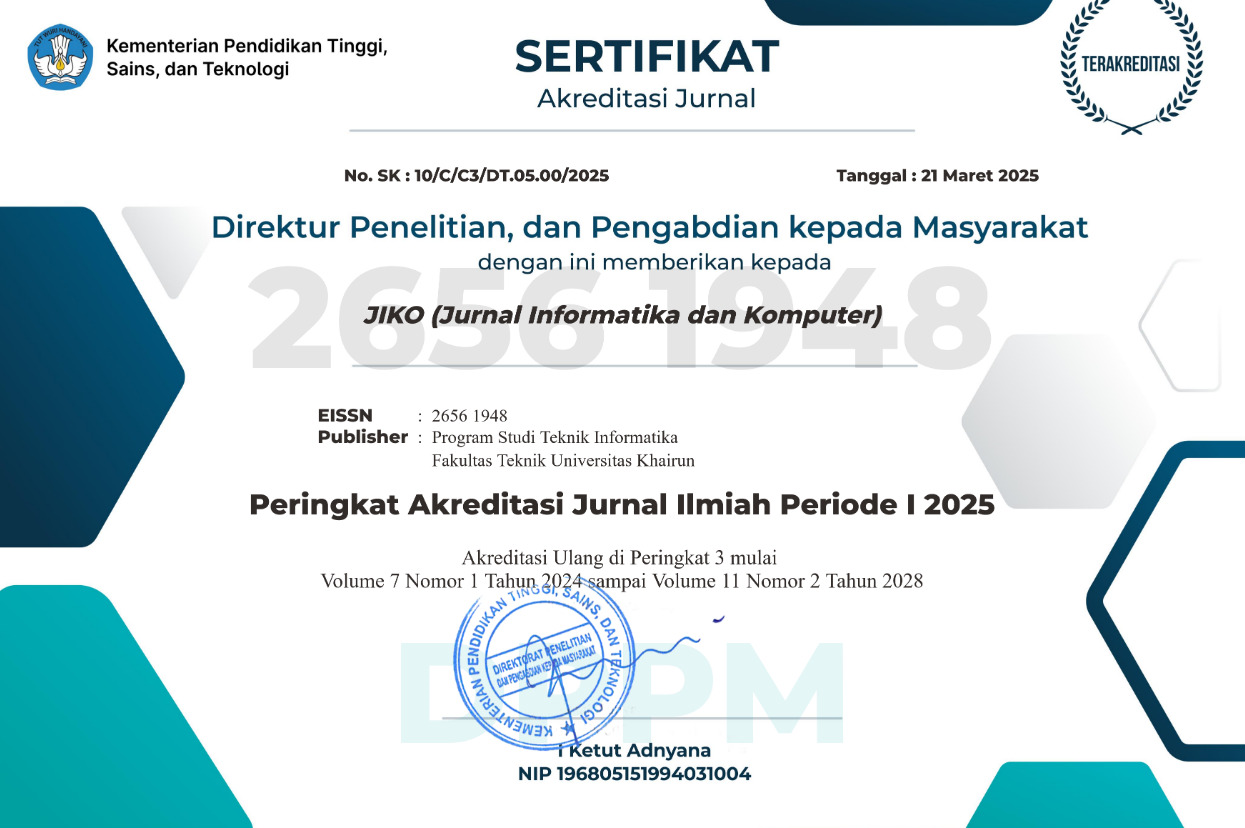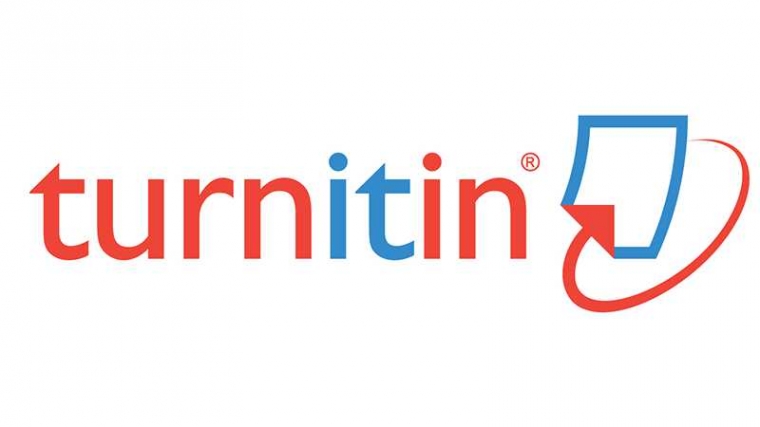EXPERIENCE EVALUATION OF ONLINE CINEMA TICKET APPLICATIONS WITH USER EXPERIENCE QUESTIONNAIRE
Abstract
The mobile ticketing application makes it easy for film viewers to order movie tickets online without time or location restrictions. In Indonesia, there are three online cinema ticket mobile application which is widely used by audiences cinemas, namely M-Tix, TX ID and Mtix. All three are competitors in the market the same, namely the mobile ticketing service for purchasing cinema tickets. Observation results shows that the number of one star reviews for the M-Tix, TX ID mobile application and there are still quite a lot of Mtix on the Google Play Store, the reviews are generally there related to user experience issues. This research aims to find out the results of evaluating user experience on the M-Tix mobile application, TIX ID and Mtix uses the User Experience Questionnaire (UEQ). This research has criteria for respondents who are M-Tix, TIX ID and Mtix mobile application users at least 18 years old. This research shows that the results of experience evaluation users on the M-Tix mobile application, namely the Attractiveness variable (Mean = 2.176), Perspicuity (Mean = 1.150), efficiency (Mean = 2.176), Dependability (Mean = 2.082), Stimulation (Mean = 2.075), and Novelty (Mean = 1.821). Experience evaluation results users on the TIX ID mobile application based on variable UEQ measurements Attractiveness (Mean = 1.786), Perspicuity (Mean = 0.991), efficiency (Mean = 1.920), Dependability (Mean = 1.723), Stimulation (Mean = 1.402), and Novelty (Mean = 1,277). And the results of the evaluation of the Cinepolis user experience Attractiveness (Mean = 2,273), Perspicuity (Mean = 1,159), efficiency (Mean = 2,330), Dependability (Mean = 2,216), Stimulation (Mean = 2,284), and Novelty (Mean = 2,000).
Full Text:
PDFReferences
D. Yolanovia and A. D. Indriyanti, “Evaluasi User Experience Aplikasi TIX ID Menggunakan Metode Heuristic Evaluation,†J. Emerg. Inf. Syst. Bus. Intellligence, vol. 02, no. 03, pp. 8–13, 2021.
S. Sarnita, “Pengguna Internet Indonesia 215,63 juta pada 2022-2023,â€Dataindonesia.Id, 2023. https://dataindonesia.id/digital/detail/apjii-penggunainternet-indonesia-21563-juta-pada-20222023
R. A. Murdiono, H. Tolle, and A. P. Kharisma, “Evaluasi User Experience Pada Aplikasi Mobile Penjualan Tiket Online,†J. Pengemb. Teknol. Inf. dan Ilmu Komput., vol. 2, no. 5, pp. 2078–2085, 2018, [Online]. Available: http://j-ptiik.ub.ac.id
S. H. Liao and C. H. Ho, “Mobile Payment and Mobile Application (App) Behavior for Online Recommendations,†J. Organ. End User Comput., vol. 33, no. 6, 2021, doi: 10.4018/JOEUC.20211101.oa2.
N. Ameniar, H. Prastawa, and Z. F. Rosyada, “Evaluasi User Experience Menggunakan Metode User Experience Questionnaire (Ueq) Dan Penerapan Kansei Engineering Pada Aplikasi Cinepolis Cinemas Indonesia,†pp. 1–8, 2022.
I. Adhani, Y. Susilawati, and Ruswianti, “Persepsi Generasi Z Terhadap Aplikasi Pemesanan Tiket Bioskop Secara Online,†Transekonomika Akuntansi, Bisnis dan Keuang., vol. 2, no. 5, pp. 121–130, 2022, doi: 10.55047/transekonomika.v2i5.175.
C. willy medi, “Tahun 2023, penonton film indonesia ditargetkan pecahkan rekor baru,†kompas.id, 2023. [Online]. Available: https://www.kompas.id/baca/humaniora/2023/01/04/tahun-2023-penonton-filmindonesia ditargetkan-pecahkan rekorbaru?utm_source=kompasid&utm_medium=link_shared&utm_content=copy_li nk&utm_campaign=sharinglink
L, Idrus. (2019). Evaluasi Dalam Proses Pembelajaran. Adaara: Jurnal Manajemen Pendidikan Islam, 9(2), 920–935. https://doi.org/10.35673/ajmpi.v9i2.427
Schrepp, M., Hinderks, A., & Thomaschewski, J. (2017b). Design and Evaluation of a Short Version of the User Experience Questionnaire (UEQ-S). International Journal of Interactive Multimedia and Artificial Intelligence, 4(6), 103. https://doi.org/10.9781/ijimai.2017.09.001
Zarour, M., & Alharbi, M. (2017). User experience framework that combines aspects, dimensions, and measurement methods. Cogent Engineering, 4(1). https://doi.org/10.1080/23311916.2017.1421006
Prof. Dr. Sugiyono, Metode Penelitian Kuantitatif, kualitatif dan R&D. 2013.
A. saepul hamdi e. baharudin, Metode Penelitian Kuantitatif Aplikasi dalam Pendidikan. 2015. [Online]. Available: https://www.google.co.id/books/edition/Metode_Penelitian_Kuantitatif_Aplikasi_d/nhwaCgAAQBAJ?hl=id&gbpv=0
https://doi.org/10.55215/jppguseda.v6i1.7527
Salmia, S. S. (2023). Development of Quality Instruments and Data Collection Techniques. Jurnal Pendidikan Dan Pengajaran Guru Sekolah Dasar (JPPGuseda), 6(1), 119–124.
Aniskurlillah, A. S. S. (2016). Perancangan Aplikasi Pembelajaran Elektronik Data Processing Dengan Menggunakan Metode Computer Based Learning. JURIKOM (Jurnal Riset Komputer), 3(1), 42–45. https://ejurnal.stmikbudidarma.ac.id/index.php/jurikom/article/view/49
A. Hinderks, M. Schrepp, and J. Thomaschewski, “A benchmark for the short version of the user experience questionnaire,†WEBIST 2018 - Proc. 14th Int. Conf. Web Inf. Syst. Technol., no. Webist, pp. 373–377, 2018, doi: 10.5220/0007188303730377.
DOI: https://doi.org/10.33387/jiko.v6i3.7015
Refbacks
- There are currently no refbacks.











